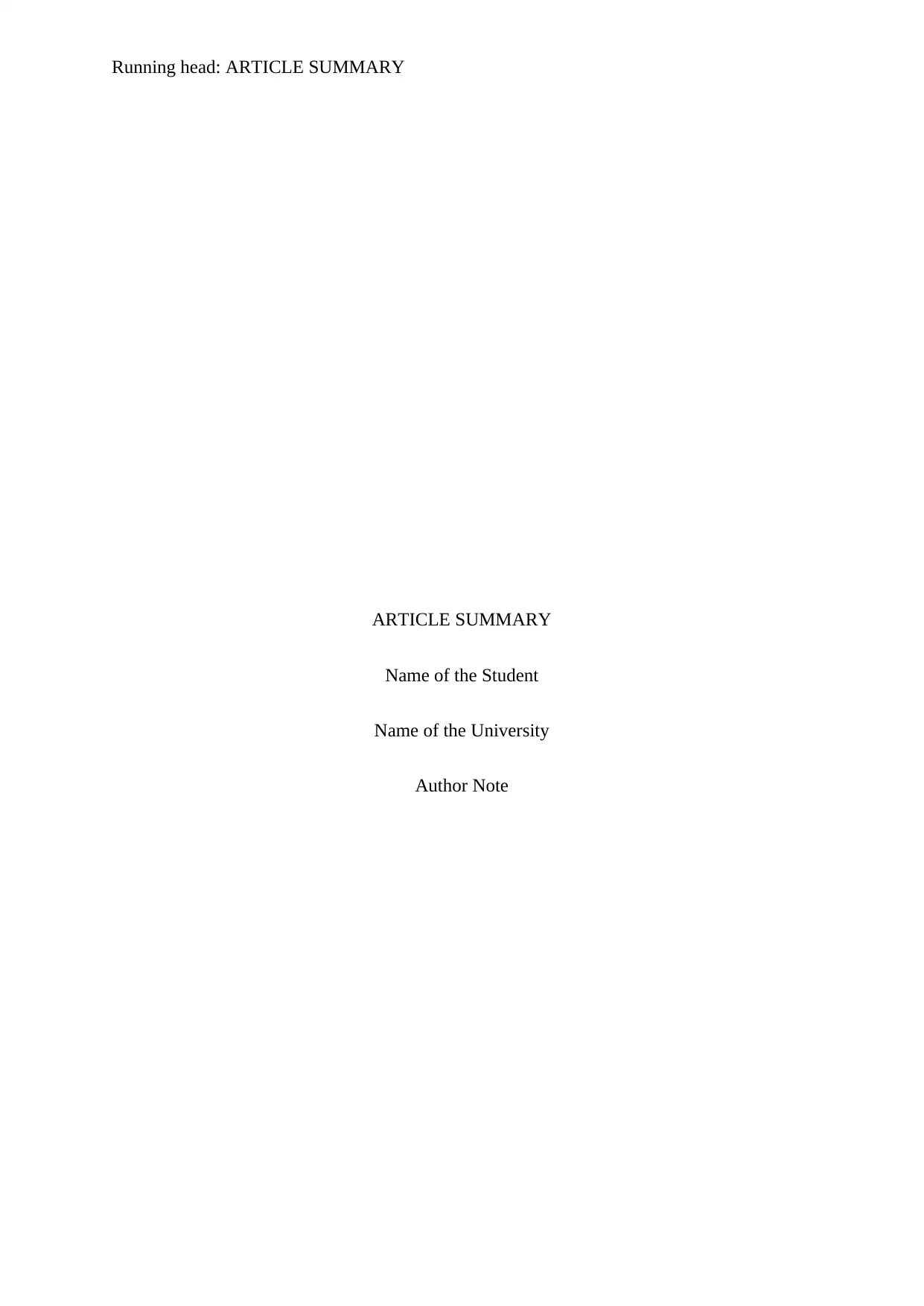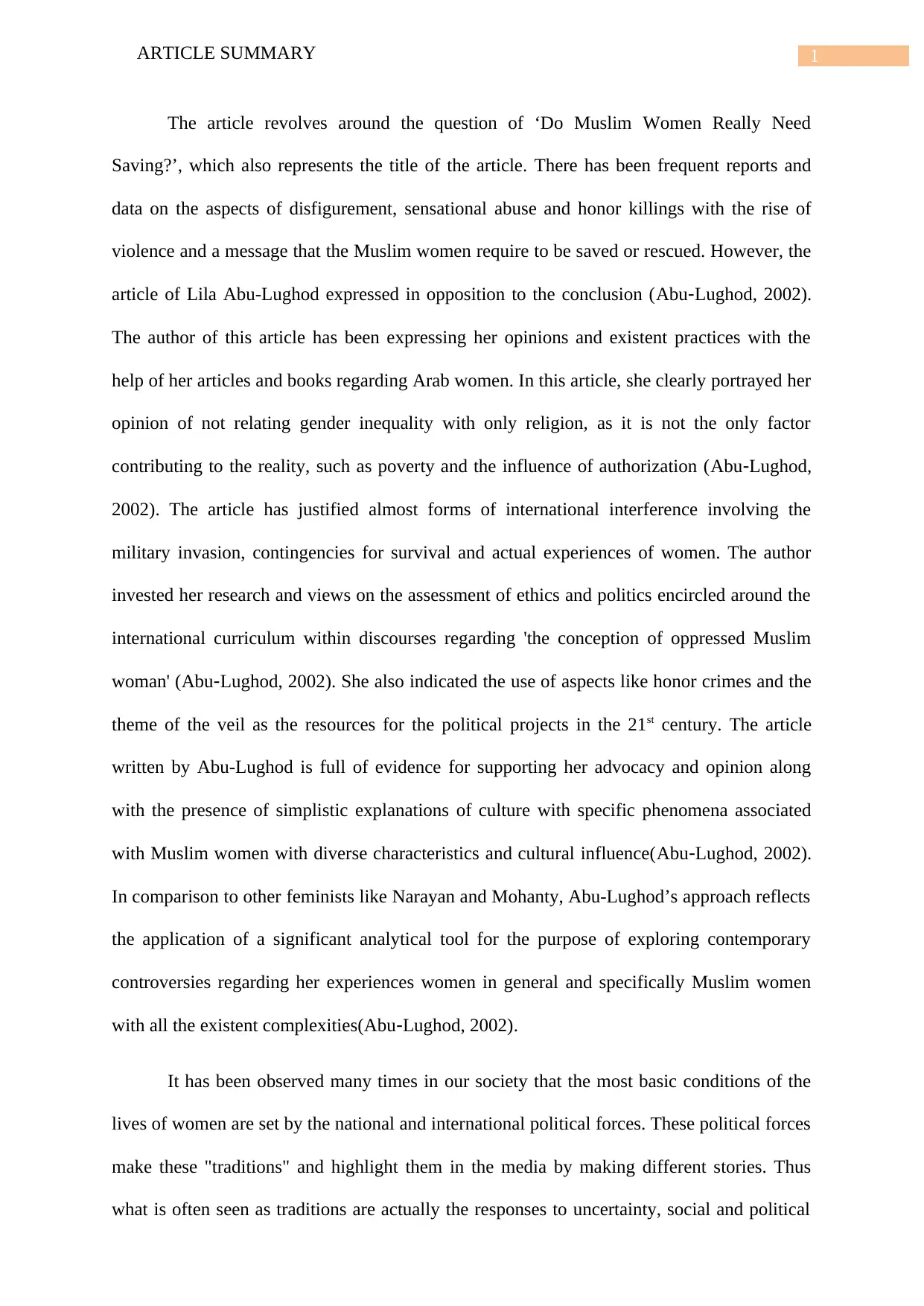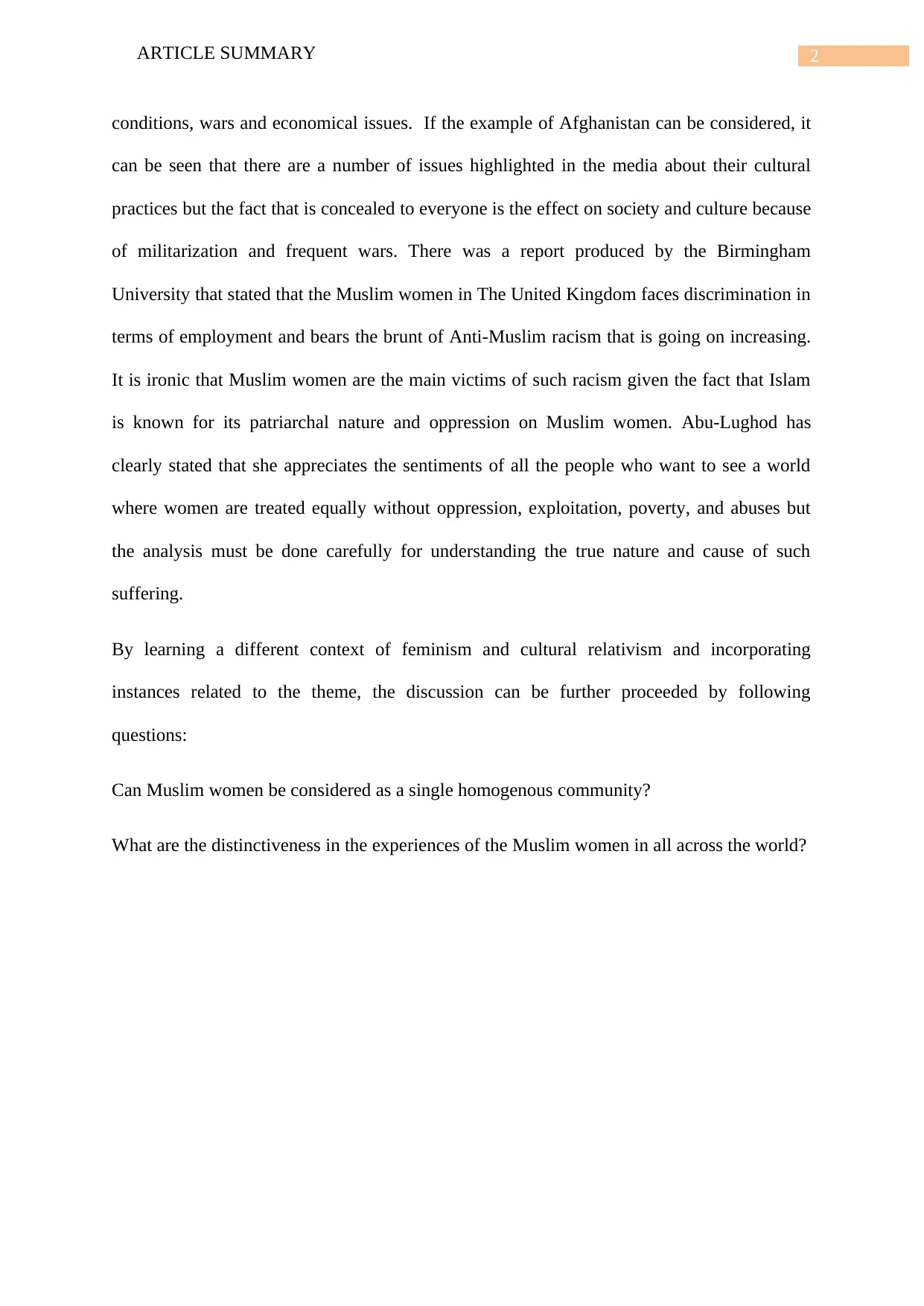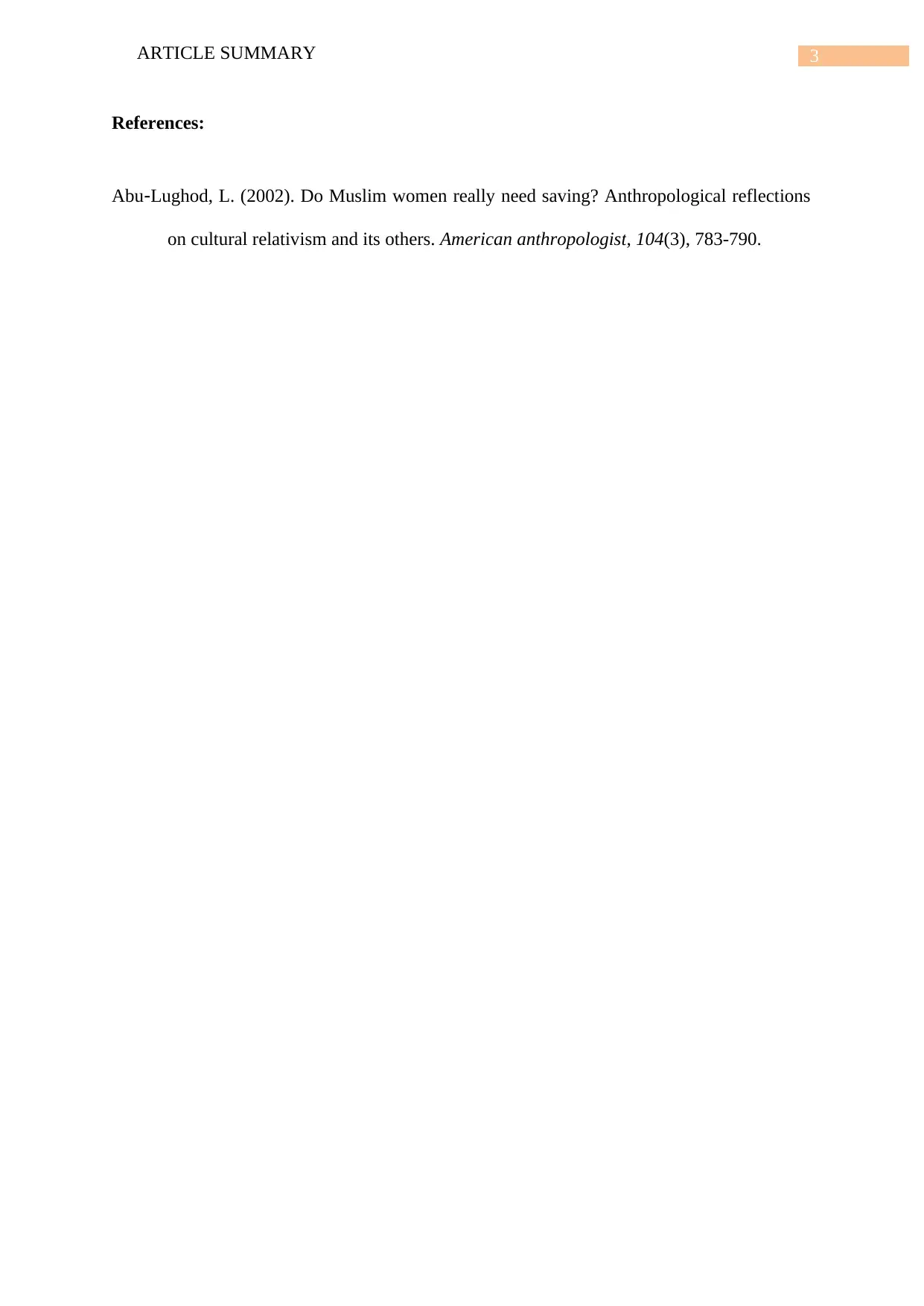Article Summary: Anthropological Reflections on Muslim Women's Issues
VerifiedAdded on 2022/09/09
|4
|682
|29
Report
AI Summary
This report summarizes Lila Abu-Lughod's article, 'Do Muslim Women Really Need Saving?' which critiques the notion that Muslim women universally need saving. The article examines the complexities of gender inequality, cultural relativism, and the influence of political forces on women's lives. Abu-Lughod argues against simplistic explanations of cultural practices and highlights the impact of international interventions and political discourses. The summary explores the author's perspective on the intersection of feminism, cultural context, and the diverse experiences of Muslim women. It also discusses the media's portrayal of Muslim women, discrimination faced by them, and the need for nuanced analysis. The report emphasizes the importance of understanding the socio-political contexts that shape women's lives, rather than reducing them to a single, homogenous group. The summary also addresses questions about the diversity of experiences among Muslim women globally.
1 out of 4








![[object Object]](/_next/static/media/star-bottom.7253800d.svg)